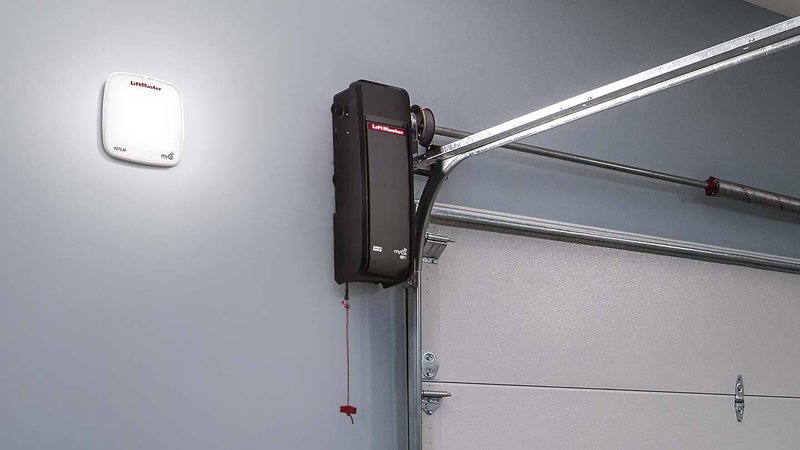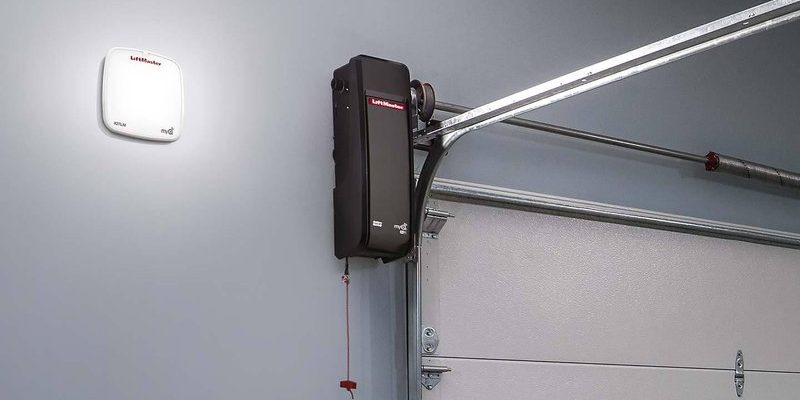
When you start shopping for a quieter garage door opener, keep in mind that different types of openers use various mechanisms, each contributing to the noise levels. Brands like LiftMaster, Chamberlain, and Genie offer models specifically engineered to cut down on noise. So, the deeper we get into this topic, the clearer it becomes that finding the right opener is crucial not just for your garage’s functionality but also for the peace in your household.
How Garage Door Openers Work
Understanding how garage door openers operate is essential in making an informed choice. At their core, these devices typically rely on a few main components: a motor, a drive system, and the actual opener mechanism (like a chain or belt). Each element has an impact on noise levels.
– Motor: This is the heart of the system, responsible for generating power. The quieter the motor, the less noise you’ll experience.
– Drive System: Openers usually use one of three types of drive systems: chain drive, belt drive, and screw drive. Belt drives are generally the quietest, making them a top choice for noise reduction.
– Opener Mechanism: The way the opener moves the door (either directly or through a track) can also contribute to noise levels. A well-designed system minimizes rattling and vibration.
In essence, knowing these key parts will help you grasp why certain models are quieter than others.
Chain Drive vs. Belt Drive Openers
When it comes to noise reduction, the debate often boils down to chain drive vs. belt drive openers. Chain drive models use a metal chain to lift and lower the garage door. While they’re generally robust and cost-effective, they can sound like a freight train coming through—definitely not ideal for quiet operations.
On the other hand, belt drive openers utilize a rubber belt, which produces a much quieter operation. Imagine the soothing sound of waves instead of crashing cymbals; that’s the level of difference we’re talking about! If you need to keep disturbances to a minimum, investing in a belt-driven model is worth considering.
Top Quiet Garage Door Openers
Now let’s get into the specifics. Here are some of the best garage door openers specifically designed for noise reduction.
- LiftMaster 8500W: This model is a wall-mounted opener that operates with a belt drive system, reducing noise significantly. It’s perfect for garages attached to living spaces.
- Chamberlain B970: This unit features a strong motor and a steel-reinforced belt, making it one of the quietest openers available. Plus, it’s equipped with smart technology for convenience.
- Genie SilentMax 1200: As the name suggests, this opener champions noise reduction with its strong yet quiet motor and soft-start/stop features.
Each of these models ensures that you can operate your garage door without upsetting the serene atmosphere of your home.
Importance of Soft Start and Stop Features
You might be wondering what exactly makes one opener quieter than another. One key feature is the soft start and stop mechanism. This technology helps reduce the sudden jerks and clanks that can occur when a garage door opens or closes.
– Soft Start: When activated, the door begins its motion gradually, easing into the operation rather than launching into it like a startled cat.
– Soft Stop: As the door approaches its fully opened or closed position, it slows down, again minimizing sudden impacts.
These features work together to soften the sounds associated with movements, allowing for a much quieter experience overall.
Installing a Quiet Garage Door Opener
Here’s the thing: Even the quietest opener can still be a pain if it’s not installed correctly. Proper installation can significantly affect how noisy your garage door opener will be in action.
Here are some tips for a successful installation:
1. Choose the Right Location: Position the opener on a sturdy beam to minimize vibrations and moving noises.
2. Follow Manufacturer Instructions: Always refer to the user manual for specific guidelines related to your chosen model.
3. Use Anti-Vibration Pads: These pads reduce transmission of noise and vibrations to the surrounding structures; it’s like giving your opener its own soft landing.
If you’re not comfortable tackling this on your own, getting a professional can be a smart investment for peace of mind.
Troubleshooting Noisy Garage Door Openers
Even with a quiet garage door opener, you might find it becoming noisier over time. Understanding common issues can help you tackle noise problems before they become significant headaches.
– Loose Hardware: Check for any loose screws or bolts in your opener. Tightening these can help reduce rattling sounds.
– Worn-Out Parts: If components like rollers or hinges are worn, they might cause the door to operate noisily. Replace any damaged parts for a smoother operation.
– Lack of Lubrication: Regular lubrication of moving parts is essential. It reduces friction and noise, keeping your opener in good shape.
Assessing these factors can save you time and money while keeping your garage quieter.
Maintenance Tips for Quiet Operation
Just like that car you love, your garage door opener needs regular maintenance to stay in tip-top shape. Here are some simple yet effective maintenance tips:
1. Regular Cleaning: Dust and debris can mess up the workings of your opener. Clean it regularly for optimal performance.
2. Lubricate Moving Parts: Use a silicone or lithium-based lubricant on the rails, hinges, and rollers to minimize noise.
3. Check Alignment: Ensure that the opener’s tracks are perfectly aligned. Misalignment can lead to more noise as it struggles during operation.
By sticking to this routine, you can significantly extend the lifespan of your opener while ensuring that it stays quiet.
Choosing a garage door opener focused on noise reduction is more than just picking a brand; it’s about harmonizing your home environment. From understanding the workings of garage door openers to selecting the right model and maintaining it, every little effort contributes to a quieter and more peaceful living space.
So, the next time you’re on the hunt for a new opener, remember that a quiet garage door opener doesn’t just enhance convenience; it enhances your lifestyle. Take the plunge to enjoy all the benefits of effortless access to your garage without the accompanying noise—your ears will thank you!
